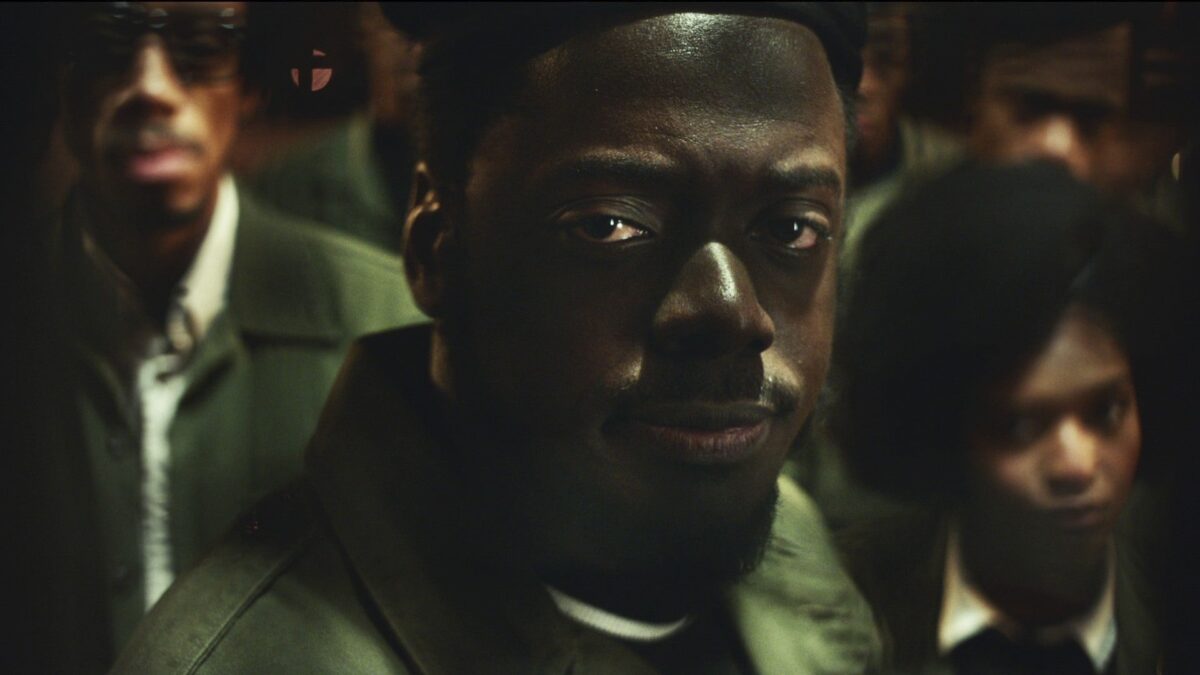By Laurie Coker
Rating: A
An exceptional cast can make almost any movie good, but when given a remarkable and timely story in which to play, the result can be near perfection. Such is the case with Judas and the Black Messiah, a Vietnam Era biopic that shines a glaring light on racial issues as relevant today as they were back then. Co-writer/director Shaka King’s (with Will Berson) telling presents an insider perspective – in more ways than one – of racial tensions, betrayal, and history.
Rather than focusing on one main story, King offers up three. One is Fred Hampton’s (Daniel Kaluuya) rise to the top of the Black Panther hierarchy (his official titles: chairman of the Illinois chapter and deputy chairman of the national party). Another follows the infiltration of FBI spy Bill O’Neal (LaKeith Stanfield), and the third looks at the operation run by J. Edgar Hoover (Martin Sheen) and underling agent Roy Mitchell (Jesse Plemons) in their efforts to bring down the Panthers, ultimately by getting Hampton out of the picture.
While the entire cast pleases, it is Kaluuya who makes this film great. He masterfully captivates as the dynamic and yet, somehow reserved leader, whose desire for his cause draws together followers with equal passion. Including his relationship with his girlfriend Deborah Johnson (Dominique Fishback), who bore Fred’s only child, gives him a softer more humane side – that and his desire to help others. Hampton had disciples who lived by his every word. Stanfield is no slouch in his depiction of “Judas”/Bill O’Neal a man forced, by his own poor decisions, to betray his race, but writers don’t give O’Neal the same depth of character that they do Hampton.
King manages an intriguing blend of worlds – that of the Panther’s and of the government entities that who work to curtail them. The contrasts are remarkable – Panther’s gathering in storefronts and churches, while Hoover and his agents foster fear in large halls and swanky restaurants. Some might argue as to whether or not King accurately portrays these elements – but his message is clear. The Chicago Police – backed by federal agencies were at war with the Panthers and it was ugly.
“Based on a true story” implies that filmmakers take liberties and many will assume King does, but Berson and King have done their research. King’s gritty and stanch imagery shows a deep-seated conflict, offering an accurate depiction of the unrest in the 1960s, which most often comes in an extremely different package. The film’s stars and ensemble cast deserve accolades making the film even more of a worthy investment of time. Judas and the Black Messiah earns an A in the grade book.
